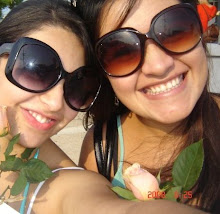Drug abuse has a wide range of definitions related to taking a psychoactive drug or performance enhancing drug for a non-therapeutic or non-medical effect. All of these definitions imply a negative judgement of the drug use in question. Some of the drugs most often associated with this term include alcohol, amphetamines, barbiturates, benzodiazepines, cocaine, methaqualone and alkaloids. Use of these drugs may lead to criminal penalty in addition to possible physical, social, and psychological harm, both strongly depending on local jurisdiction. Other definitions of drug abuse fall into four main categories: public health definitions, mass communication and vernacular usage, medical definitions, and political and criminal justice definitions.
Historical medical use of the term
"In the early 1900s, the first edition of the American Psychiatric Association's Diagnostic and Statistical Manual of Mental Disorders referred to both alcohol and drug abuse as part of Sociopathic Personality Disturbances, which were thought to be symptoms of deeper psychological disorders or moral weakness. By the third edition, in the 1940s, drug abuse was grouped into 'substance abuse'."
In 1932, the American Psychiatric Association created a definition that used legality, social acceptability, and even cultural familiarity as qualifying factors:
“ …as a general rule, we reserve the term drug abuse to apply to the illegal, nonmedical use of a limited number of substances, most of them drugs, which have properties of altering the mental state in ways that are considered by social norms and defined by statute to be inappropriate, undesirable, harmful, threatening, or, at minimum, culture-alien."”
Glasscote, R.M., Sussex, J.N., Jaffe, J.H., Ball, J., Brill, L. (1932). The Treatment of Drug Abuse for people like you...: Programs, Problems, Prospects. Washington, D.C.: Joint Information Service of the American Psychiatric Association and the National Association for Mental Health.
In 1966, the American Medical Association's Committee on Alcoholism and Addiction defined abuse of stimulants (amphetamines, primarily) in terms of 'medical supervision':
“…'use' refers to the proper place of stimulants in medical practice; 'misuse' applies to the physician's role in initiating a potentially dangerous course of therapy; and 'abuse' refers to self-administration of these drugs without medical supervision and particularly in large doses that may lead to psychological dependency, tolerance and abnormal behavior.”
Legal approaches
Most governments have designed legislation to criminalise certain types of drug use. These drugs are often called "illegal drugs" but generally what is illegal is their unlicensed production, distribution, and possession. These drugs are also called "controlled substances". Even for simple possession, legal punishment can be quite severe. Laws vary across countries, and even within them, and have fluctuated widely throughout history.
Attempts by government-sponsored drug control policy to interdict drug supply and eliminate drug abuse have been largely unsuccessful. In spite of the huge efforts by the U.S., drug supply and purity has reached an all time high, with the vast majority of resources spent on interdiction and law enforcement instead of public health. In the USA, the number of nonviolent drug offenders in prison exceeds by 100,000 the total incarcerated population in the USA, despite the fact that the EU has 100 million more citizens.
Despite drug legislation (and some might argue because of it), large, organized criminal drug cartels operate world-wide. Advocates of decriminalization argue that drug prohibition makes drug dealing a lucrative business, leading to much of the associated criminal activity.
domingo
Suscribirse a:
Enviar comentarios (Atom)



No hay comentarios:
Publicar un comentario